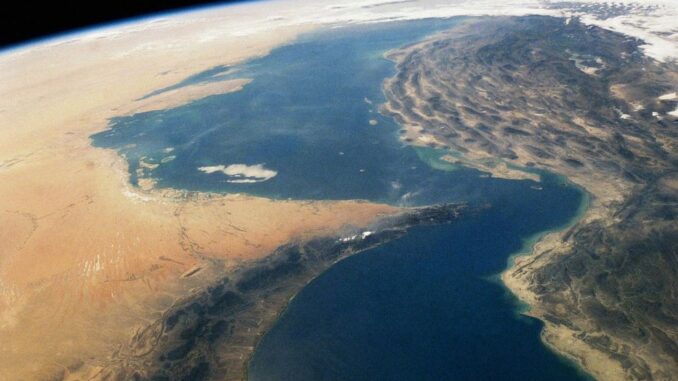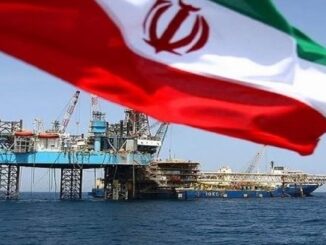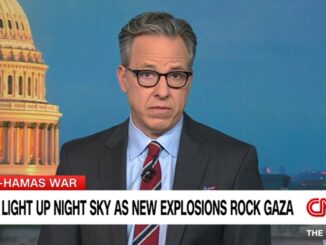
Energy News Beat Publishers Note: There has been more stability in the middle east in the last 4 years than in decades. The peace treaties between the Arab countries and Isreal are a critical part of the United States and Iran nuclear discussions. If continued to be overlooked, it will be the key reason for the failure of the nuclear talks.
The U.S. and Iran appear poised to resume diplomacy, with a view to reviving the multilateral nuclear deal scrapped in 2018 by President Donald Trump. Last week, the Biden administration said it would accept a European invitation to participate in meetings with Iran the other signatories to the agreement, known as the Joint Comprehensive Plan of Action.
But one of the most significant flaws of the JCPOA was that it did not address the tensions between Iran and its Gulf Arab neighbors. This omission rendered the agreement highly vulnerable to pressure within the American political system, informed — and at times encouraged — by some Gulf governments. If the new Biden initiative is to be successful, this needs to be remedied.
How, though? Although the Biden team has said it will consult with Iran’s neighbors, there’s little prospect that the U.S. will be able to bring the Arab states to the negotiating table, alongside the other world powers, with the Islamic Republic. Iran has said it won’t abide by such an arrangement, and the other signatories aren’t especially keen on the idea.
What’s needed is parallel dialog between Iran and the Arabs, most notably Saudi Arabia. Getting this started will not be easy, but not impossible either. There has already been some outreach toward Iran — especially from the United Arab Emirates but also Saudi Arabia. Iran, too, has signaled an interest in open-ended talks.
High-level interest in dialog is reflected in two extraordinary opinion columns coauthored by Saudi intellectual Abdulaziz Sager, who is close to King Salman’s circles, and Iran’s former nuclear spokesperson, Hossein Mousavian, who is familiar with the national security apparatus in Tehran. The first, in May 2019, simply called for regional dialog. Last month, the two again wrote jointly, laying out 12 fundamental principles for talks.
But the principles don’t add up to a plausible process. Iran has been pushing for a regional security framework. This is a worthy long-term goal, but it is a big leap from the current tensions to such a broad understanding. The practical course is for both sides to build confidence over time and in stages, starting with the least contentious issues.
Maritime security, for instance, is very much in their common interest, since Iran and its Gulf Arab neighbors all export hydrocarbons through the Strait of Hormuz and the Gulf of Oman. Tehran plainly felt excluded from the de facto Gulf maritime security arrangement. In pushing back against the Trump administration’s “maximum pressure” sanctions, Iran repeatedly attacked commercial shipping in the Gulf waters, sending the clear message: If we can’t sell our oil, nobody can.
A formal Arab-Iranian understanding to ensure maritime security in the Gulf would be an obvious win-win for everyone. When Iran eventually resumes full-scale oil exports, it will have a stake in preventing disruption of the sea lanes.
Arab-Iranian cooperation on ending the war in Yemen is a heavier lift, but achievable. Saudi Arabia needs a way out of that quagmire, but the Iran-backed Houthi rebels currently have no incentive to provide one. Tehran could help by pulling back its own military support — just as the Biden administration has for the Saudi-led coalition — and pressing the Houthis to enter peace negotiations, and half cross-border attacks into Saudi territory.
Iran has found harassing Saudi Arabia in Yemen to be a useful way to keep its rival busy in a conflict that’s not a major strategic concern for Tehran. Helping the Saudis find a face-saving exit from the conflict would give the Iranians a path towards the more serious dialogue with their neighbors and a way to show the Islamic Republic can be a force stability in the region, and not just an agent of chaos.
Harder still will be to get a hands-off agreement on countries like Syria and Iraq, where the Arabs believe Iran wields undue influence through proxy militias, and Tehran says the Arab states are working with the U.S. and Israel to encircle Iran. But if both sides can agree, as Sager and Mousavian suggest, to respect the sovereignty and territorial integrity of all states, direct interference could conceivably be contained, if not eliminated.
The biggest challenge will be the question of non-state actors, in particular Iran’s network of proxy militias in Lebanon, Syria, Iraq and elsewhere. This is obviously intolerable for its neighbors and incompatible with regional stability. Yet it is the main means by which Iran projects its power and influence in the Arab world.
One of the key goals of Arab-Iranian dialogue would be the delineation of spheres of influence. For that to work, Iran will have to decide where its priorities lie. If it wants a regional security framework, then it must allow the states of the region to exercise sovereign authority without being undermined by armed gangs. If it wants to maintain a network of fanatical and sectarian militia groups in other countries, then there can’t be a regional security framework.
But at the very least, dialog between Iran and its Arab neighbors would give both sides a clear picture of their options.
This column does not necessarily reflect the opinion of the editorial board or Bloomberg LP and its owners.



